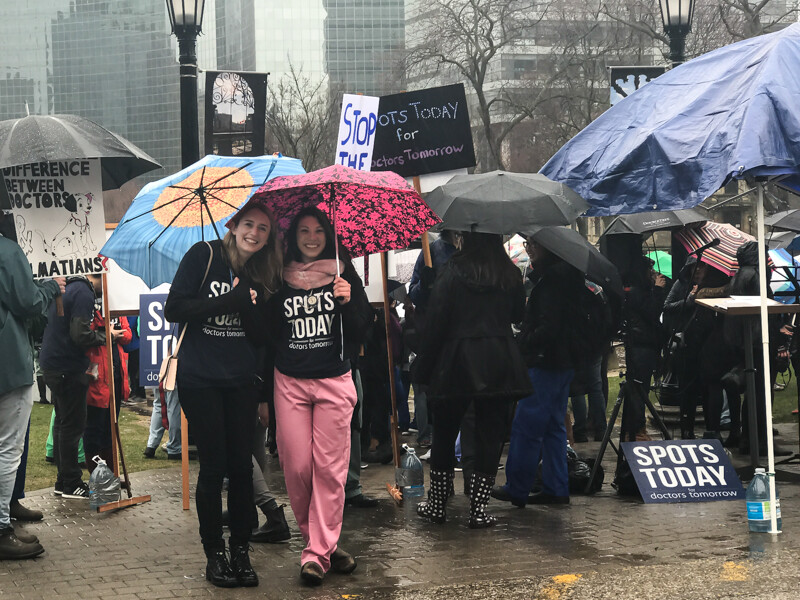Mobile Menu
-
MD Program
- Curriculum
- Interprofessional education
- MD Plus: Combined & Dual Degree Programs
- Academies
- Policies and Procedures
- Teaching in the MD Program
- Affiliated programs
- CACMS Accreditation
- Admissions
-
Student Resources
- Office of Learner Affairs (OLA)
- Community of Support
- Summer Mentorship Program
- Student Mistreatment
- Academic Calendar
- Incoming Students
- Resources for Indigenous Students
- Registration Requirements & Requests
- Research Opportunities
- Graduation & Alumni
- Student Tools & e-Resources
- Finances & Awards
- Student Assistance
- School Absences
- About Us
- MD/PhD Program

 Dozens of medical students from U of T and across the province gathered at Queen’s Park on April 25 to press political leaders for a long-term solution to the lack of residency spots for graduating medical students.
Dozens of medical students from U of T and across the province gathered at Queen’s Park on April 25 to press political leaders for a long-term solution to the lack of residency spots for graduating medical students.